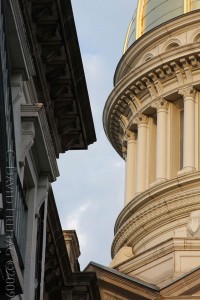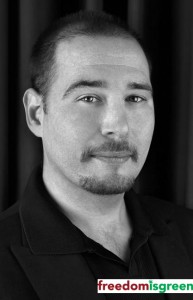
Mommy, I want a Bob Marley poster!
What do you do? Your baby has just tested positive for marijuana. First you have to deal with the social embarrassment of it all. What will the neighbors say? But more importantly, your baby is now unemployable. That extra income your family so desperately need is tossed away like used Pampers.
But seriously folks, babies are testing positive for marijuana. And not because they found your stash and rolled a fatty. Apparently some of the compounds found in baby soap have a structure partly similar to THC or the chemicals in the soap change the way the test works.
Here’s a look at the brands they say produced a positive marijuana test:
- Johnson & Johnson’s Head-to-Toe Baby Wash
- J&J Bedtime Bath
- CVS Night-Time Baby Bath
- Aveeno Soothing Relief Creamy Wash
- Aveeno Wash Shampoo
Unfortunately this information could be used as a way for social services to become very involved in your life, though this article claims otherwise. (Figure it this way: in this day and age, if the “authorities” need an invitation into your life, they’ll find it.)
Another aspect you won’t see addressed in this article? The chemicals that are found in baby soap could practically degrease your car engine. Sodium laureth sulfate and sodium lauryl sulfate are cheap chemicals commonly found in about 90% of your toiletries that can cause a host of health problems. You won’t read as many articles about this because big companies hardly want to replace this cheap detergent with something less harmful. You don’t need suds to feel clean, whether its in your toothpaste, shampoo or soap.
Remember: If it bubbles, it’s trouble.
Certain soaps used to wash babies shortly after birth may cause the baby to test positive for marijuana on some newborn screening tests, a new study suggests.
In the study, urine samples that contained minute amounts of any of five baby soaps — Johnson & Johnson’s Head-to-Toe Baby Wash, J&J Bedtime Bath, CVS Night-Time Baby Bath, Aveeno Soothing Relief Creamy Wash and Aveeno Wash Shampoo — gave a positive result on a drug screening test for tetrahydrocannabinol (THC), the active ingredient in marijuana.The researchers began their investigation after nurses at a North Carolina hospital reported an increase in the number of newborns testing positive for marijuana.
The amount of soap in the urine needed to produce a positive test result was tiny, less than 0.1 milliliters, the researchers said.
It’s important to note the soaps do not produce a “high,” or any other effects of marijuana, in infants. “It’s not marijuana a in any way, shape or form,” said study researcher Catherine Hammett-Stabler, a professor of pathology and laboratory medicine at the University of North Carolina, Chapel Hill.
A screening test that indicates a baby has been exposed to marijuana can lead to the involvement of social services, and accusations of child abuse, the researchers said.
Given these consequences, it’s important for health-care providers and laboratory staffs to be aware that these soaps may lead to a positive test for marijuana, and to consider confirming positive tests with a more sensitive method, the researchers said.
“We really did this to help protect families from being falsely accused” of drug use, and to help ensure that intervention efforts are directed to babies who are truly at risk of drug exposure, said study researcher Dr. Carl Seashore, a pediatrician in the newborn nursery at UNC Chapel Hill.
Drug screening tests in hospitals that come back positive are not usually sent out to laboratories for additional conformation, because of the time and cost involved, said study researcher Catherine Hammett-Stabler, also of UNC Chapel Hill.
Newborn screening for exposure to marijuana is common, and is especially recommended for babies born to women considered to be “high risk” for drug use, such as those who do not come in for prenatal care visits, Hammett-Stabler said. At UNC Chapel Hill, 10 to 40 percent of babies born in the hospital receive the test each month, Seashore said.
Read more at MSNBC.

Ready to read the REAL Ingredients in Johnson’s Head-to-Toe Baby Wash which is “as gentle to the eyes as pure water”? (Better put your Hazmat suit on first.)
(Thanks to the SmartMama.com for this analysis.)
Ingredients of Johnson’s Head-to-Toe Baby Wash include:
Water, Cocamidopropyl Betaine, PEG-80 Sorbitan Laurate, Sodium Laureth Sulfate, PEG-150 Distearate, Tetrasodium EDTA, Sodium Chloride, Polyquaternium-10, Fragrance, Quaternium-15, Citric Acid.PEG-80 Sorbitan Laurate, Sodium Laureth Sulfate and PEG-150 Distearate are all ethoxylated compounds.
Ethoxylated compounds, unless vacuum stripped, are contaminated with 1,4-dioxane. 1,4-dioxane has been identified as a probable human carcinogen by the U.S. Environmental Protection Agency (EPA). 1,4-dioxane is not listed on the ingredient list because it is a contaminant from the manufacturing process, not an ingredient. The FDA encourages manufacturers to remove 1,4-dioxane from products, but there is no requirement that it be done.
And, testing reported by the Campaign for Safe Cosmetics did find 1,4-dioxane in Johnson’s Head-to-Toe baby wash at 5.3 to 6.1 parts per million (ppm). In fact, in its FAQ section of its website, Johnson & Johnson admits that “[s]ome of the ingredients in our products may contain 1,4-dioxane as an incidental ingredient at extremely low levels.”
Further, sodium laureth sulfate can cause eye and skin irritation. Do you think that is consistent with the claim that the product is “hypoallergenic”? Wouldn’t you expect it to be free of any ingredient known to cause irritant responses? As a note, sodium laureth sulfate was widely reported on the web as being a carcinogen, but at least to date, research by the EPA, OSHA, NTP and IARC has not suggested that sodium laureth sulfate is a carcinogen.
Cocamidopropyl betaine, PEG-80 sorbitan laurate and PEG-150 disterate can all cause allergic reactions. Again, these ingredients aren’t what you would expect in a product advertising itself as hypoallergenic. Cocamidopropyl betaine may also be contaminated with nitrosamines.
Quaternium-15 may release formaldehyde. Formaldehyde is a known carcinogen. But, I actually think that Quat-15, as it is called, is more of a problem because it is the number one cause of contact dermatitis from preservatives, according to the American Acadmey of Dermatology’s Testing Tray results. Also, it is identified by the cosmetic industry’s Cosmetic Ingredient Review (CIR) Expert Panel as a sensitizer, but is still considered safe by the CIR as a cosmetic ingredient. (If you want to learn about the function of the CIR, I encourage you to read Stacy Malkan’s Not Just A Pretty Face). It has also been linked to birth defects in laboratory animals when administered orally.
Finally, the product contains “fragrance” – which means synthetic fragrance and, of course, phthalates. Phthalates are used in fragrance to sustain the fragrance and make it adsorb better to the skin. Johnson & Johnson admits that it uses diethyl phthalate (DEP) in its baby products. And, as reported in a recent study, exposure to DEP in baby care products results in the presence of a DEP metabolite in baby urine. Phthalates are endocrine disruptors, which means that they can mimic hormones and disrupt’s the body’s normal function. Phthalates have been linked to premature breast development in girls, deteriorated sperm quality, low sperm counts and poor sperm morphology in men, and a host of other adverse health effects.

Beth Mann is a popular blogger and writer for Open Salon and Salon. She is also an accomplished artist with over 15 years of experience, as well as the president of Hot Buttered Media. She currently resides at the Jersey shore where she can be found surfing or singing karaoke at a local dive bar.
Contact: maryjane {at } freedomisgreen.com












